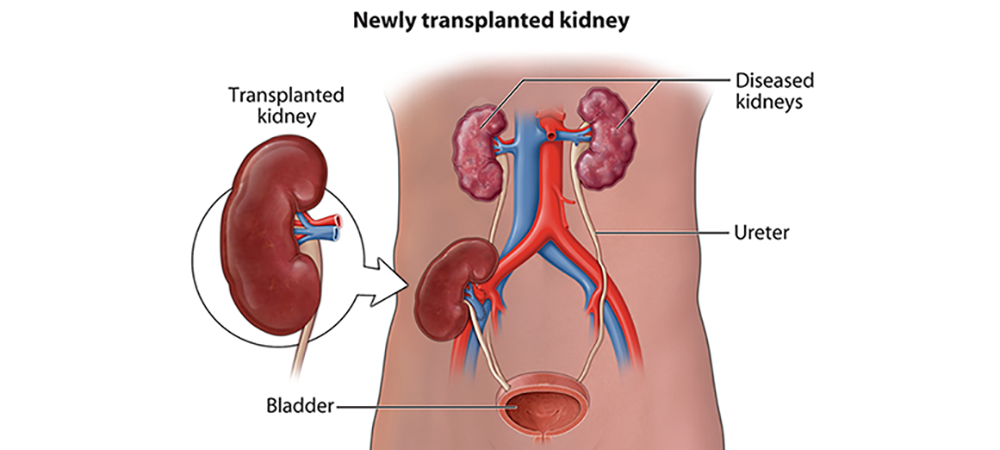
How To Get a Kidney Transplant
10 Jan, 2023Do you need a kidney transplant? Learn about the two types of kidney transplants and how to select a hospital for the procedure.
By producing urine, the kidneys filter the blood, removing waste, minerals, and fluid.
When kidneys lose their capacity to filter, dangerous amounts of fluid and waste build up in the body, raising blood pressure and leading to kidney failure (end-stage renal disease).
The main treatment options for patients with kidney failure are Kidney transplantation and dialysis.
Kidney transplant procedure provides the best treatment options for patients with established kidney failure.
Key Takeaways
1. You may require a renal transplant when your kidney has stopped working.
2. There are 2 types of kidney transplants: living and deceased donor transplants.
3. Not taking anti-rejection medication can lead to a failed kidney transplant.
What Is a Kidney Transplant?
A kidney transplant, also known as a renal transplant, is a major surgery during which a person with kidney failure receives a new kidney either from a living donor or a deceased donor.

What Are the Types of Kidney Transplants?
There are two main types of kidney transplants which are:
a. Living-donor kidney transplants - The procedure involves the removal of a kidney from a living donor and placement into a recipient whose kidneys no longer function properly.
b. Deceased-donor kidney transplants - The procedure involves the removal of a kidney from someone who has recently passed on, and with the family's consent, placing it in a recipient whose kidneys have failed.
What Conditions Can a Kidney Transplant Treat?
In some cases, some conditions do not require kidney transplantation. Diseases treated with kidney transplants include but are not limited to:
- Polycystic kidney disease
- Nail-patella syndrome
- Glomerulonephritis
- Berger disease
- Congenital renal obstructive disorders
- Repeated urinary infections
- Glomerulonephritis
- Haemolytic uremic syndrome
- Kidney stones
Have you recently been diagnosed with a kidney condition? Talk to a patient support specialist to get you started on the most appropriate treatment.
What Are the Requirements for a Kidney Transplant?
A kidney donor can be living or deceased, related, or unrelated to you, although the following requirements determine whether a donated kidney may be suitable for you:
1. Overall health. You must be in good health to undergo a kidney transplant surgery. Your overall health will be examined by the transplant team.
2. Blood typing. It is recommended to get a kidney from a donor whose blood type matches or is compatible with your own.
3. Tissue typing. Compares genetic markers that increase the likelihood the transplanted kidney will last a long time and the likelihood of not experiencing organ rejection.
4. Crossmatch. Determines whether there will be a reaction of antibodies in your blood against specific antigens in the donor's blood.
Other factors may include matching of age, kidney size and infection exposure.
Are you in need of a kidney transplant? Or do you know someone who needs a new kidney? Talk to a patient support specialist to get you started on the kidney transplant process.
What Is the Cost of a Kidney Transplant?
According to Lyfboat, the average cost of kidney transplants in India, Egypt, Turkey, Thailand, United States of America and the United Kingdom starts from $13,500, $15,000, $20,000 and $30,000, $70,000, and $76,000, respectively.
Country | Cost in USD |
India | $13,500 |
Egypt | $15,000 |
Turkey | $20,000 |
Thailand | $30,000 |
USA | $70,000 |
UK |